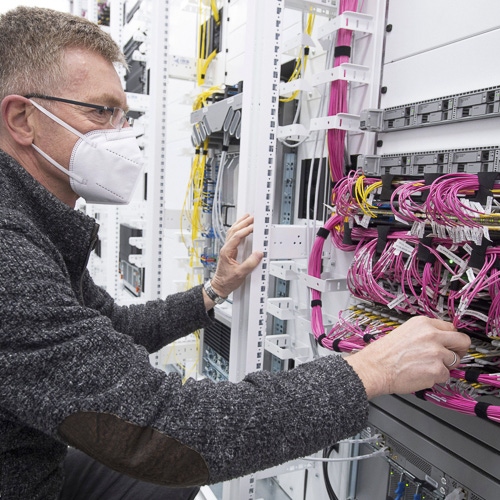'We're the only ones with a 5G standalone core and you really need a 5G standalone core to enable a lot of these use cases that you're hearing about,' T-Mobile CFO Peter Osvaldik said this week.

According to T-Mobile's CFO, one of the company's primary selling points among large enterprise customers is its standalone 5G network.
"We're the only ones with a 5G standalone core and you really need a 5G standalone core to enable a lot of these use cases that you're hearing about network slicing, creating private networks, things like that," T-Mobile CFO Peter Osvaldik said this week during an investor event, according to a Seeking Alpha transcript. "So, that's why enterprises are tremendously excited to work with us because they know we have the network capabilities."
Osvaldik added that T-Mobile is also working with its enterprise customers on new services, including private wireless networks and edge computing. However, he said, "we're not out there every week with a press release of, here's a trial, here's a trial, here's a trial. We have actual commercial – not just pilot but commercial – relationships out there with what we call 5G advanced network services."
Broadly, T-Mobile hopes to double its share of the enterprise market, from around 10% today to 20% by 2025. Osvaldik noted that Alaska Airlines recently named T-Mobile as its sole wireless provider.
"Very excited about the opportunity there," Osvaldik said of the enterprise market.
Osvaldik's comments on T-Mobile's standalone 5G network are noteworthy considering that the company was one of the first in the world to launch the technology, which supports 5G connections outside of a 4G anchor network.
Figure 1:  A technician works on the servers at Vodafone's first standalone 5G site in Frankfurt.
A technician works on the servers at Vodafone's first standalone 5G site in Frankfurt.
(Source: dpa picture alliance/Alamy Stock Photo)
Both AT&T and Verizon had previously promised to quickly move to standalone 5G, but neither has done so. For example, Verizon recently said that it would start expanding its 5G standalone core sometime later this year, after previously promising "full commercialization" in 2021. AT&T executives have declined to provide a firm launch date for the technology after missing a planned 2020 launch.
In comments to SDxCentral, analyst Dave Bolan with research and consulting firm Dell'Oro Group acknowledged the "slow uptake" of standalone 5G. He blamed several factors including difficulties developing business cases and edge computing services.
"It's not a trivial deployment," agreed UScellular CTO Mike Irizarry. He recently said that the operator expects to light up its own standalone 5G core with vendor Nokia sometime later this year. "The core is the core, and you've got to get it right."
Related posts:
— Mike Dano, Editorial Director, 5G & Mobile Strategies, Light Reading | @mikeddano
About the Author(s)
You May Also Like










